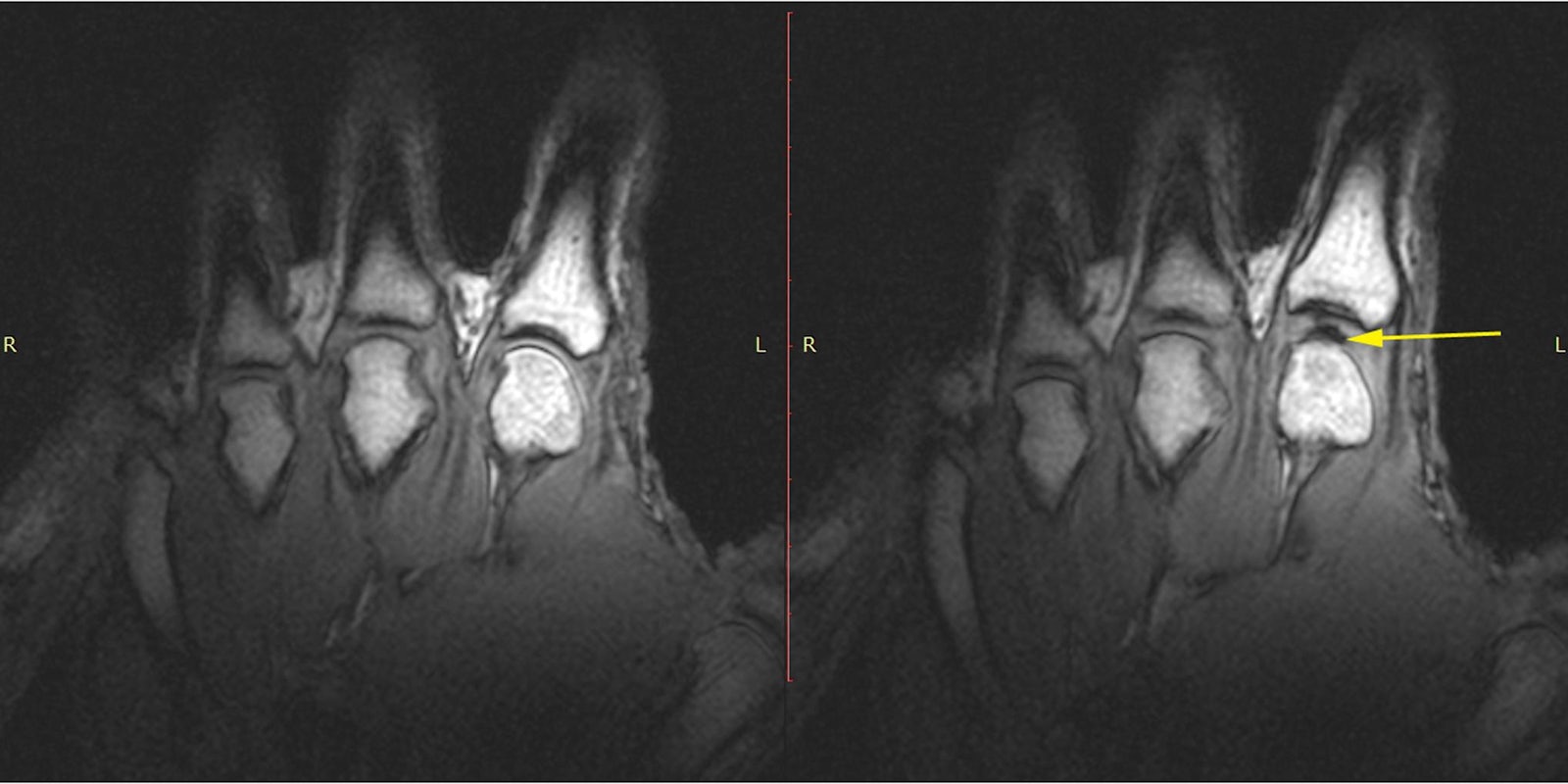Knuckle cracking might not be bad for you. In fact, it could be good for you, according to an unpublished study presented at the Radiological Society of North America annual meeting this past December.
It turns out that people who cracked their knuckles had a greater range of motion after doing so. To understand why, researchers have looked into what happens in the joint when the knuckles crack.
Between every joint in your bones, you have a sack of fluid called synovial fluid. Gas bubbles form within the fluid as you pull the joint and, when the knuckled is “cracked,” the bubble pops. But researchers weren’t sure if the formation or the popping of that bubble was what created the loud noise. Now, after looking at 400 ultrasounds of people cracking their knuckles, the researchers are fairly sure it’s the popping of the bubble that causes the sound.
It’s actually pretty cool to watch. The video below, published by a different group of researchers in a 2015 study in PLOS One, shows what happens as the bubble forms, then pops (the little white blob turns into a little black hole) as someone cracks their knuckles.
Isn’t knuckle-cracking bad for you?
There’s not really much strong evidence to suggest cracking your knuckles will lead to any long-term damage. One study from the ’70s interviewed patients with arthritis and asked them if they cracked their knuckles, and they found a correlation between the two. But another similarly structured study found no correlation.
Another interesting piece of evidence comes from Donald Unger, who in 2009 won an Ig Nobel prize for his decades-long research project on himself. Unger only cracked the knuckles in one of his hands for 60 years. By the end of his little pet project, he found he had no more arthritis in his left knuckle-cracking hand than his right.
However, we did find one study of a couple acute injuries that resulted from knuckle cracking. The main takeaway? Don’t force it. If you’ve really got to force your fingers to hear that satisfying “pop,” you might wind up with an unsatisfying visit to the emergency room, the study said. So best to let those hard-to-get cracks go—give it a few minutes to let more gas build up in your joint.
So why do people say it’s bad for you?
According to a CNN article that covered the same study, no one is really sure where that myth began.
The best guess is that it probably came from people who find the sound of cracking knuckles to be irritating or revolting—similar to how holding your face in a grotesque position can cause it to freeze that way. Parents at their wit’s end will say anything to get their kid to stop that annoying habit.


